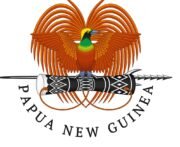Scientists from the University of the Free State (UFS) have earned a place among the world’s elite researchers. Recognised in the World’s Top 2% Scientists list for 2024 by Stanford University, these academics are making significant strides in their fields.
Prestigious Recognition for UFS Researchers
The recently released list by Stanford University, in collaboration with Elsevier and based on Scopus data, highlights researchers who are making impactful contributions globally. This acknowledgment is not just a nod to their individual achievements but also a testament to the quality of research emerging from UFS.
Among the esteemed scientists is Prof Abdon Atangana from the UFS Institute for Groundwater Studies. Ranked 391st globally and second in Applied Mathematics out of over 2,000 authors, his work is making waves internationally. Similarly, Prof Karl Peltzer, a Research Fellow in the Department of Psychology, stands at 4,806th in the world and 47th in Public Health among nearly 70,000 authors.
Prof Vasu Reddy, Deputy Vice-Chancellor for Research and Internationalisation, expressed his pride: “We at UFS are thrilled to see our scholars making a positive impact on global research efforts.”

New Faces on the Global Stage
This year saw new entrants from UFS making it to the prestigious list. Prof Felicity Burt, a Principal Medical Scientist in Virology and current South African Research Chair in Vector-Borne and Zoonotic Pathogens Research, is among them. Others include Prof Yonas T. Bahta from the Department of Agricultural Economics, Dr Andronicus Akinyelu of Computer Science and Informatics, Prof Abiodun A. Ogundeji from the Disaster Management Training and Education Centre for Africa (DiMTEC), and Dr Marieka Gryzenhout, a Senior Lecturer in the Department of Genetics.
Dr Gryzenhout, ranked 578th out of nearly 27,000 authors in Mycology & Parasitology, was pleasantly surprised by her inclusion. She attributes her recognition to the long-term impact and relevance of her research, stating, “It’s about impactful and relevant research that’s cited over a long period.”
Her work delves into various aspects of medicinal mushrooms, including psychedelic varieties and fungal biodiversity.
Noteworthy Achievements in Health Sciences
Dr Anand Krishnan, a Senior Lecturer in Chemical Pathology affiliated with the Faculty of Health Sciences, has also been honoured. With over 127 published articles, a patent, eight books, and 22 book chapters, his contributions are significant. Ranked 218,468th globally and 1,688th in Pharmacology & Pharmacy among over 148,000 authors, Dr Krishnan is a leading figure in nano diagnostic and therapeutic research.
He is also one of only two South African researchers selected to co-author the latest guidelines for Extracellular Vesicles (EV) research. Collaborating with over a thousand authors from 53 countries, the guidelines aim to standardise EV research practices.
Reflecting on his recognition, Dr Krishnan said, “Being acknowledged in this elite group is a tremendous honour. It validates my commitment to advancing research in precision medicine and nano diagnostics.”
The Impact of Global Recognition
The inclusion of these UFS scientists in the World’s Top 2% list is more than an individual accolade. It highlights the university’s dedication to fostering high-quality research and its commitment to addressing complex global challenges.
Prof Reddy emphasised the collective pride of the institution: “Our academics’ vision and dedication serve as a true inspiration for all of us at UFS. They drive real-world solutions to intricate problems.”
This recognition also serves as motivation for other researchers and students within the university. It showcases the possibilities that dedication and innovative thinking can achieve, encouraging a culture of excellence.
Looking Forward to Continued Excellence
The achievements of these scientists set a high benchmark for future research at UFS. Their work not only contributes to their respective fields but also enhances the university’s reputation on the global stage.
Dr Gryzenhout believes that impactful research requires networking and collaboration. She notes that large, network-based publications often draw high citations due to their importance and reach.
With such talent and commitment, UFS is poised to continue its trajectory of excellence. The university’s support for its researchers plays a crucial role in these accomplishments, providing an environment where innovation thrives.
















